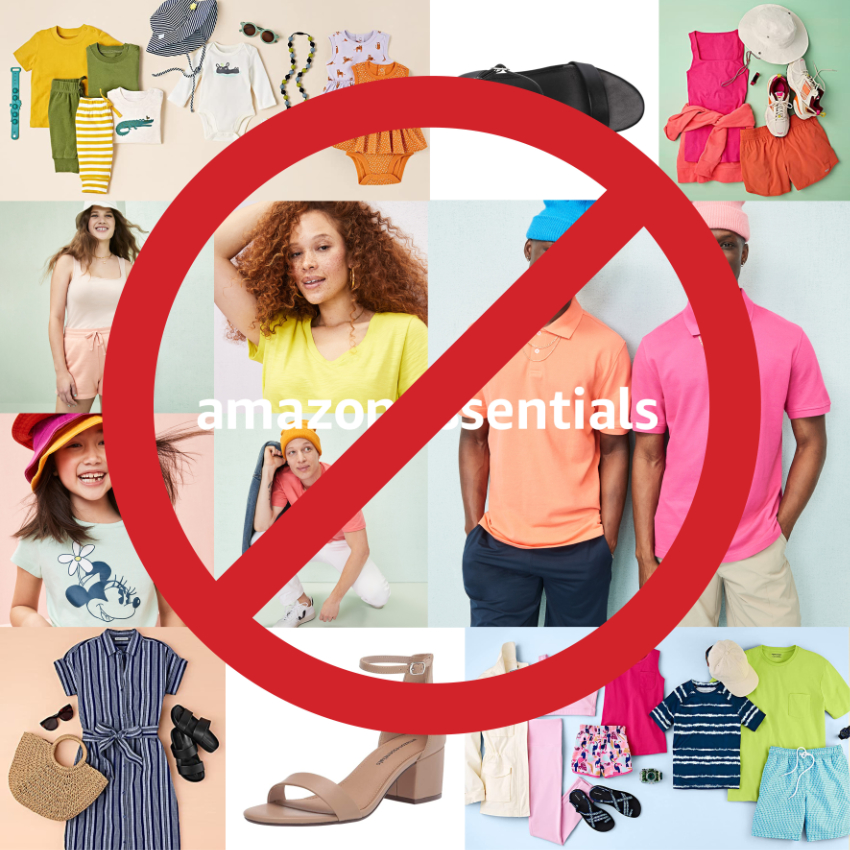Back in the day we called them “knockoffs.” For example, brick-and-mortar retailers would copy a brand’s best-seller summer dress and design a near duplicate for their own private labels. This still goes on, with just enough differentiation to avoid counterfeit status (street vendors selling “Rolexes” and “Louis Vuitton” bags notwithstanding). In China, however, where the word counterfeit does not exist (metaphorically), many manufacturers view “copying” as a compliment to the item’s originator. So, with today’s pragmatic Chinese menu, you get an original Chanel bag from assembly line A and an exact knockoff from assembly line B.
Knocking Off Knockoffs
Now according to a recent WSJ article, under the growing duress of antitrust scrutiny by enforcers and Congress, as well as many of the third-party brands sold on its marketplace, Amazon has been drastically cutting back on the number of items it sells under its private label. While disappointing sales were cited as a reason for doing so, the larger reason are the issues with knockoffs of many winning third-party brands in Amazon’s own private label lines.
To put it bluntly, when wholesale brands and physical retailers operate on Amazon’s digital platform, Amazon owns their data and through the use of precision analytics, can accurately and swiftly identify the winners and losers across a multitude of different brands.
The big difference between how old-fashioned brick-and-mortar retailers knocked off wholesale brands and Amazon copying its third-party brands and retailers, is the ease, accuracy and speed with which Amazon can do the replications. To put it bluntly, when wholesale brands and physical retailers operate on Amazon’s digital platform, Amazon owns their data and through the use of precision analytics, can accurately and swiftly identify the winners and losers across a multitude of different brands. Amazon also prioritizes its own brands in its web search algorithms, so for example, that look-alike Stuart Weitzman sandal shows up at the top of search results. This habitual Amazon copycatting got the House of Representative’s Judiciary Committee’s attention and it referred the matter to the Justice Department for possible criminal conduct. Specifically, the allegation is that Amazon executives lied about the company’s use of seller data and “manipulation of consumers’ search results,” according to Retail Dive.
Uneasy Alliances
One CEO of a major retailer I talked to about all of this said, “Once you sign a deal with Amazon, it’s like dancing with the devil,” referring to Amazon’s access to competitive intelligence and how they manipulate it. “On the other hand,” he said, “Amazon’s global reach and its billions of consumers cannot be ignored.” Dance with the devil or a rock and a hard place. You decide.
Of course, Amazon denies that its interests conflict with the retailers and brands using its marketplace platform. Following a harsh House report, Amazon said, “Amazon and third-party sellers have a mutually beneficial relationship, and our interests are well aligned.” Sounds to me like typical communications department spin. The same report revealed that inside Amazon, third-party retail and brand sellers were referred to as “internal competitors.” Well, so much for putting lipstick on the proverbial pig.
Accordingly, the Federal Trade Commission has been investigating Amazon’s competitive practices as well as the Securities and Exchange Commission is examining its business practices. The article did point out that even if the company gains an advantage from seller data, Amazon’s private labels do not necessarily dominate its site. Marketplace Pulse found that in some categories Amazon’s private labels represent less than one percent of sales, although clothing, shoes and accessories are at nine percent. No surprise here as apparel’s margins are much higher than other basic consumer goods. Amazon’s total private label business is comprised of 243,000 products across 45 different house brands as of 2020.
While top Amazon executives considered they might completely exit private brands due to the constant beating by the government and their own third-party participants, in addition to its small percentage of their overall business, they decided not to take any action except for dumping under-performing brands.
As reported in Retail Dive, Amazon said, “We never seriously considered closing our private label business and we continue to invest in this area, just as our many retail competitors have done for decades and continue to do today.” Sounds like hubris to me. As I mentioned, Amazon has an impressively accurate and speedy intelligence data gathering process to compete with their third parties.
New Marketplaces
Here are a few coming attractions Amazon needs to keep an eye on: new marketplace launches by Walmart, Nordstrom, Macy’s … and most likely, Target. It will be interesting to see how these iconic retailers shape their models, and if they will succumb to the same questionable competitive intelligence data gathering and knockoff methods used by Amazon. Imitation can be seen as the greatest form or flattery, or more realistically in today’s terms, the price of doing business. The ultimate judge will be the customer. Authentic or ersatz? The reputation and trust factor of any retailer or brand is at stake.




